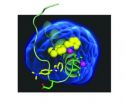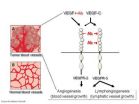(Press-News.org) COLUMBUS, Ohio – An intensive, five-week working memory training program shows promise in relieving some of the symptoms of attention deficit hyperactivity disorder in children, a new study suggests.
Researchers found significant changes for students who completed the program in areas such as attention, ADHD symptoms, planning and organization, initiating tasks, and working memory.
"This program really seemed to make a difference for many of the children with ADHD," said Steven Beck, co-author of the study an associate professor of psychology at Ohio State University.
"It is not going to replace medication, but it could be a useful complementary therapy."
Beck conducted the study with Christine Hanson and Synthia Puffenberger, graduate students in psychology at Ohio State. Their findings are published in the November/December 2010 issue of the Journal of Clinical Child & Adolescent Psychology.
The researchers tested software developed by a Swedish company called Cogmed, in conjunction with the Karolinska Institute, a medical university in Stockholm.
The software is designed to improve one of the major deficiencies found in people with ADHD – working memory.
Working memory is the ability to hold onto information long enough to achieve a goal. For example, you have to remember a phone number long enough for you to dial it. Students have to remember the passage of a book they just read, in order to understand what they're currently reading.
"Working memory is critical in everyday life, and certainly for academic success, but it is one of the things that is very difficult for children with ADHD," Hanson said.
The study involved 52 students, aged 7 to 17, who attended a private school in Columbus that serves children with learning disabilities, many of whom also have an ADHD diagnoses. All the children used the software in their homes, under the supervision of their parents and the researchers.
The software includes a set of 25 exercises that students had to complete within 5 to 6 weeks. Each session is 30 to 40 minutes long. The exercises are in a computer-game format and are designed to help students improve their working memory. For example, in one exercise a robot will speak numbers in a certain order, and the student has to click on the numbers the robot spoke, on the computer screen, in the opposite order.
"At first the kids love it, because it is like a game," Puffenberger said. "But the software has an algorithm built in that makes the exercises harder as the students get better. So the children are always challenged."
Half the students participated at the beginning of the study. The other half were wait-listed, and completed the software program after the others were finished.
Parents and teachers of the participating students completed measures of the children's ADHD symptoms and working memory before the intervention, one month after treatment, and four months after treatment.
Results showed that parents generally rated their children as improving on inattention, overall number of ADHD symptoms, working memory, planning and organization and in initiating tasks. These changes were evident both immediately after treatment and four months later.
On individual measures, between one-fourth and one-third of the children showed clinically significant progress – in other words, enough progress to be easily visible to their parents.
The teacher ratings, while pointed in the direction of improvement, were not strong enough to be statistically significant in this study. That's not surprising, Beck said, because very few treatment studies ever find significance among teacher measures.
"Teachers only see the kids for a few hours a day and they are dealing with a lot of other children at the same time. It would be difficult for them to see changes," Beck said.
Beck said this is the first published study they know of testing this software in the United States. One of the strengths of the study is that it used a very typical sample of children with ADHD – other studies in Sweden had excluded children who were on medication.
"Most kids with ADHD are on some kind of medication, so it helps to know how this intervention works in these cases," he said.
In this sample, 60 percent of the students were on medication. The results showed the program was equally effective regardless of whether they were on medication or not.
"Medication for ADHD does not help directly with working memory, and the training program does, so it can be useful," Beck said.
"One of the encouraging findings is that parents reported even ADHD symptoms improved after the program, and that isn't the focus. This program is focused on improving working memory."
Beck said they can't say for sure how the program works to help kids with ADHD. But it seems that children are learning how to focus and how to use their working memory on everyday tasks, and they are able to use that knowledge at school and home.
One possible criticism of the study could be that it relies on parental reports, and the parents may be biased.
"That's true, but it is also the parents who are observing the kids day in and day out, and they are the ones who would be most likely to observe any changes that occur," Beck said.
The researchers plan on extending the work by using more objective measures of children's progress after using the program.
INFORMATION:
Two other co-authors of the study were William Benninger, an adjunct assistant professor of psychology at Ohio State, and Kristen Benninger, a medical student at the University of Toledo
Beck, Hanson and Puffenberger have no financial interest in the company that makes the software. William Benninger does have an interest, but was not involved in the collection of the data.
Contact: Steven Beck, (614) 292-6849; Beck.5@osu.edu
Written by Jeff Grabmeier, (614) 292-8457; Grabmeier.1@osu.edu
Computer-based program may help relieve some ADHD symptoms in children
2010-12-10
ELSE PRESS RELEASES FROM THIS DATE:
Living in certain neighborhoods increases the chances older men and women will develop cancer
2010-12-10
ANN ARBOR, Mich.---Older people who live in racially segregated neighborhoods with high crime rates have a much higher chance of developing cancer than do older people with similar health histories and income levels who live in safer, less segregated neighborhoods.
That is one of the key findings of a new study forthcoming in the January 2011 issue of the American Journal of Public Health. The study was conducted by Vicki Freedman, an epidemiologist at the University of Michigan Institute for Social Research and colleagues at the University of Medicine and Dentistry of ...
When their tools get dull, leaf-cutters switch jobs
2010-12-10
EUGENE, Ore. -- (Dec. 9, 2010) -- When their razor-sharp mandibles wear out, leaf-cutter ants change jobs, remaining productive while letting their more efficient sisters take over cutting, say researchers from two Oregon universities.
Their study -- appearing online ahead of regular publication in the journal Behavioral Ecology and Sociobiology -- provides a glimpse of nature's way of providing for its displaced workers.
"This study demonstrates an advantage of social living that we are familiar with -- humans that can no longer do certain tasks can still make very ...
Buprenorphine treatment produces improved outcome for babies born addicted
2010-12-10
Babies born into the world addicted to drugs because of their mother's dependence on pain medication, or opioids, may be weaned off the substance more comfortably, with a shorter hospital stay and at a reduced cost, if the mother receives a new treatment option during pregnancy.
A New England Journal of Medicine study published Dec. 9, co-authored by Vanderbilt's Peter Martin, M.D., director of the Division of Addiction Psychiatry, found that the newer buprenorphine is at least as good for both mother and child as the standard care methadone, when both were combined with ...
Unraveling Alzheimer's: Simple small molecules could untangle complex disease
2010-12-10
ANN ARBOR, Mich.---New molecular tools developed at the University of Michigan show promise for "cleansing" the brain of amyloid plaques, implicated in Alzheimer's disease.
A hallmark of Alzheimer's disease---a neurodegenerative disease with no cure---is the aggregation of protein-like bits known as amyloid-beta peptides into clumps in the brain called plaques. These plaques and their intermediate messes can cause cell death, leading to the disease's devastating symptoms of memory loss and other mental difficulties.
The mechanisms responsible for the formation of these ...
2 decades of Nuss procedure outcomes: Refinements in groundbreaking surgery for chest deformity
2010-12-10
Since 1987, when a surgeon at Children's Hospital of The King's Daughters developed a minimally-invasive surgery to correct sunken chest, the procedure has been adopted world-wide as a standard of care and continually refined to increase its effectiveness and safety, according to a paper published in the December issue of the Annals of Surgery.
Coming more than two decades after the procedure was developed by surgeon Donald Nuss, the article summarizes the cases of 1,215 patients who had the Nuss Procedure at Children's Hospital of The King's Daughters and focuses on ...
Patients may not have to stop taking anti-platelets for some surgeries
2010-12-10
Despite the common clinical practice among surgeons to discontinue their patients' anti-platelet therapy prior to surgery, a recent study of patients undergoing carotid endarterectomy (CEA) indicated that this practice may be unnecessary. The study will be published in the December issue of the Annals of Vascular Surgery.
The use of clopidogrel (Plavix, Bristol-Myers Squibb/Sanofi-Aventis), an antiplatelet agent prescribed for patients with acute myocardial infarction (severe heart attack), recent stroke or peripheral arterial disease, continues to rise with U.S. sales ...
UCLA researchers find that Medicaid-funded ADHD treatment for children is failing
2010-12-10
Whatever its final incarnation, the recently enacted landmark Patient Protection and Affordable Care Act will expand Medicaid eligibility and is expected by 2013 to provide coverage, including mental health care, to an estimated 4.1 million children currently uninsured.
That's a good thing. But what will the quality of care be, especially for vulnerable children with special health care needs? Poor, according to a new report in the current online edition of the Journal of the American Academy of Child and Adolescent Psychiatry.
In cooperation with LA Care, one of ...
Fox Chase researchers uncover new risk factors for brain metastases in breast cancer patients
2010-12-10
SAN ANTONIO, TEX. (December 9, 2010)––Nearly one-fifth of all metastatic breast cancer patients develop brain metastases and have significantly shorter overall survival than patients who do not have brain involvement. One way to improve the affected patients' survival might be to prevent the brain metastases from arising in the first place. With that in mind, researchers have been working on a predictive model that accurately identifies these high risk patients. Now, Veeraiah Siripurapu, M.D., and colleagues from Fox Chase Cancer Center have verified several factors––including ...
Web of international collaboration boosts worldwide nanotechnology research
2010-12-10
Despite their initial focus on national economic competitiveness, the nanotechnology research initiatives now funded by more than 60 countries have become increasingly collaborative, with nearly a quarter of all papers co-authored by researchers across borders.
Researchers from the two leading producers of nanotechnology papers – China and the United States – have become each nation's most frequent international co-authors. Though Chinese and U.S. researchers now publish roughly the same number of nanotechnology papers, the U.S. retains a lead in the quality of publications ...
A double block of blood vessels to starve cancerous tumors
2010-12-10
A novel strategy of blocking the growth of blood vessels with antibodies should result in improved treatment of cancerous tumors.
The growth of new blood vessels from pre-existing vasculature is called angiogenesis. In adults, angiogenesis occurs only during wound healing and menstrual cycling, but is abundant and harmful in cancerous tumors and the old-age eye disease frequently leading to blindness called age-related macular degeneration (AMD). Without the formation of new blood vessels, tumors cannot grow beyond a small size due to lack of oxygen and nutrients. Inhibition ...




